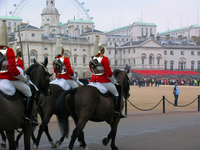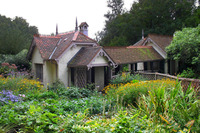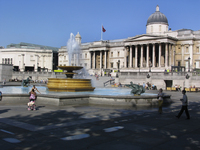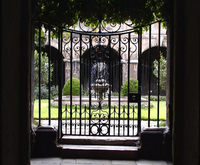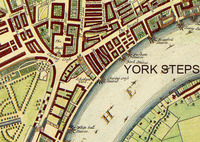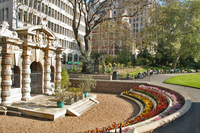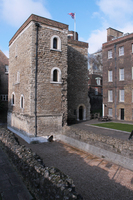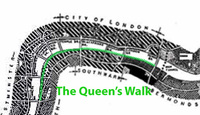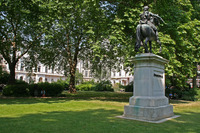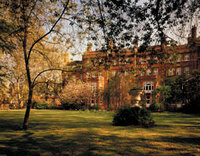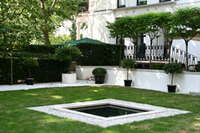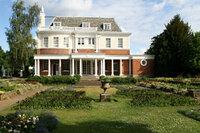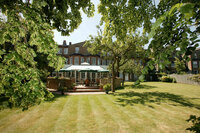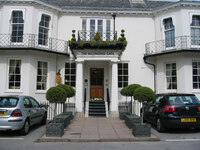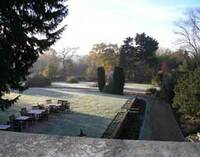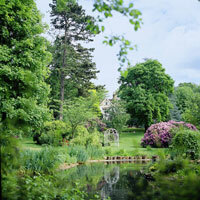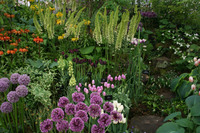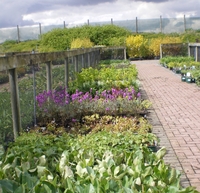- England
- Scotland
- France
- Holland
- Germany
- Italy
- Spain
- Portugal
- USA
- China
- Japan
- India
- Iran
- Advice
- Gardens
- England
- Scotland
- France
- Holland
- Germany
- Italy
- Spain
- Portugal
- USA
- China
- Japan
- India
- Iran
- Advice
- Garden Tours
From 1530 until it was destroyed by fire in 1698, Whitehall Palace was the home of Englands kings and queens. Only the Banqueting House, designed by Inigo Jones's in 1622 survives and fronts onto the street called Whitehall. The bank of the River Thames moved east when the river was narrowed by the building of an underground railway and trunk sewer. The former Privy Garden, which was south of the Banquetting House, is now occupied by the Ministry of Defense. It was an English version of the Renaissance Style of garden design.
The site was developed by the the Archbishop of York after 1240 and called York Place. Cardinal Wolsey made it into a great palace in the sixteenth century and it was taken over by King Henry VIII in 1530. Henry further expanded Whitehall Palace and made a renaissance garden, a bowling green and a tiltyard. He purchased the land which became St James's Park, in which he kept exotic animals. The compartment garden spanned what is now Whitehall. The tiltyard is now Horseguards Parade. Henry VIII married two of his wives in Whitehall Palace and also died there.
The former Tiltyard of Whitehall Palace, now Horse Guard's Parade, is on the London Gardens Walk and included in the eBook guide to the London Gardens Walk
Whitehall, London, Greater London, England
The site of Whitehall Palace is now occupied by other government buildings.
